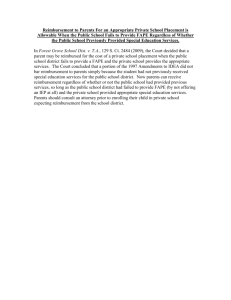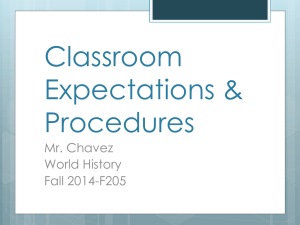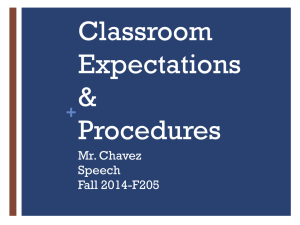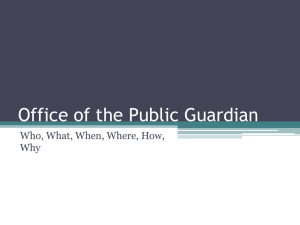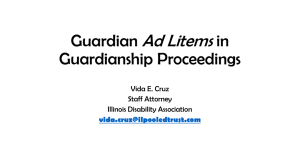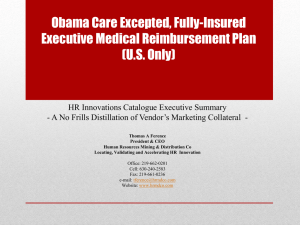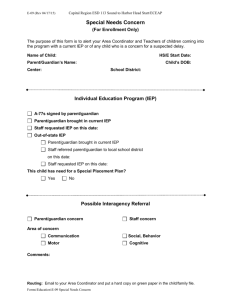Garden Grove USD Attorney
advertisement
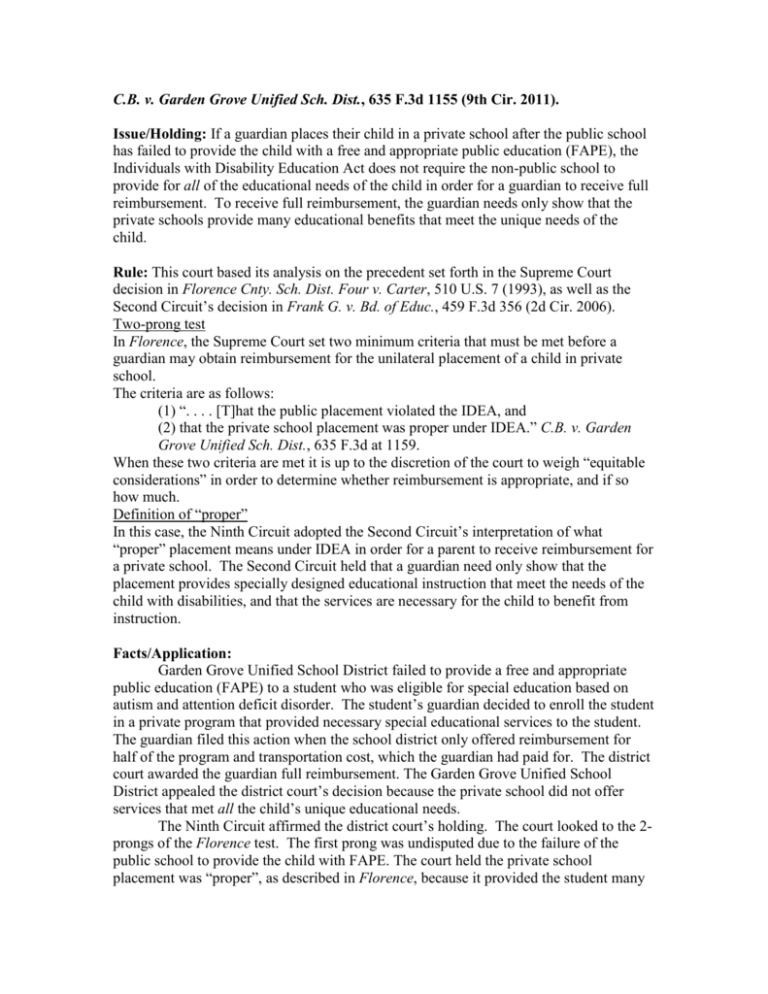
C.B. v. Garden Grove Unified Sch. Dist., 635 F.3d 1155 (9th Cir. 2011). Issue/Holding: If a guardian places their child in a private school after the public school has failed to provide the child with a free and appropriate public education (FAPE), the Individuals with Disability Education Act does not require the non-public school to provide for all of the educational needs of the child in order for a guardian to receive full reimbursement. To receive full reimbursement, the guardian needs only show that the private schools provide many educational benefits that meet the unique needs of the child. Rule: This court based its analysis on the precedent set forth in the Supreme Court decision in Florence Cnty. Sch. Dist. Four v. Carter, 510 U.S. 7 (1993), as well as the Second Circuit’s decision in Frank G. v. Bd. of Educ., 459 F.3d 356 (2d Cir. 2006). Two-prong test In Florence, the Supreme Court set two minimum criteria that must be met before a guardian may obtain reimbursement for the unilateral placement of a child in private school. The criteria are as follows: (1) “. . . . [T]hat the public placement violated the IDEA, and (2) that the private school placement was proper under IDEA.” C.B. v. Garden Grove Unified Sch. Dist., 635 F.3d at 1159. When these two criteria are met it is up to the discretion of the court to weigh “equitable considerations” in order to determine whether reimbursement is appropriate, and if so how much. Definition of “proper” In this case, the Ninth Circuit adopted the Second Circuit’s interpretation of what “proper” placement means under IDEA in order for a parent to receive reimbursement for a private school. The Second Circuit held that a guardian need only show that the placement provides specially designed educational instruction that meet the needs of the child with disabilities, and that the services are necessary for the child to benefit from instruction. Facts/Application: Garden Grove Unified School District failed to provide a free and appropriate public education (FAPE) to a student who was eligible for special education based on autism and attention deficit disorder. The student’s guardian decided to enroll the student in a private program that provided necessary special educational services to the student. The guardian filed this action when the school district only offered reimbursement for half of the program and transportation cost, which the guardian had paid for. The district court awarded the guardian full reimbursement. The Garden Grove Unified School District appealed the district court’s decision because the private school did not offer services that met all the child’s unique educational needs. The Ninth Circuit affirmed the district court’s holding. The court looked to the 2prongs of the Florence test. The first prong was undisputed due to the failure of the public school to provide the child with FAPE. The court held the private school placement was “proper”, as described in Florence, because it provided the student many necessary educational benefits. The court found that the school districts argument that a private school must provide for all the educational needs of a child in order to be considered “proper” is not valid because this standard is not stated anywhere in IDEA. Therefore, because the guardian was able to show that the private school provided for many of the child’s unique educational needs it was appropriate for the district court to award the guardian full reimbursement.
